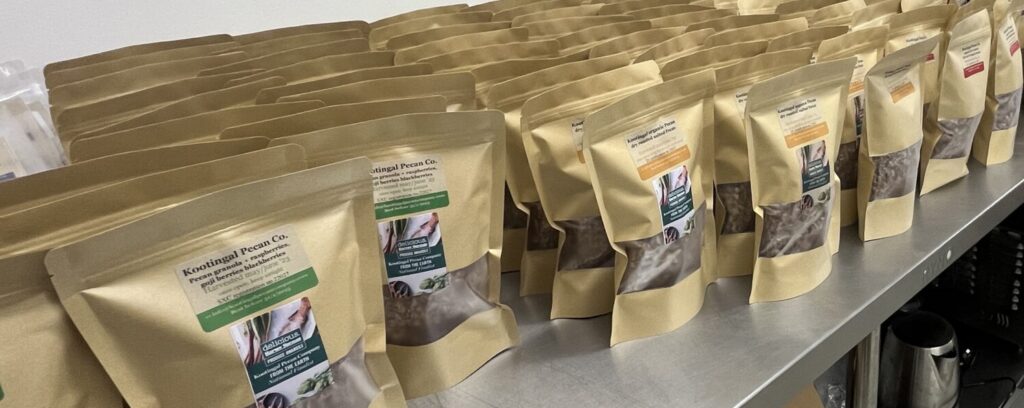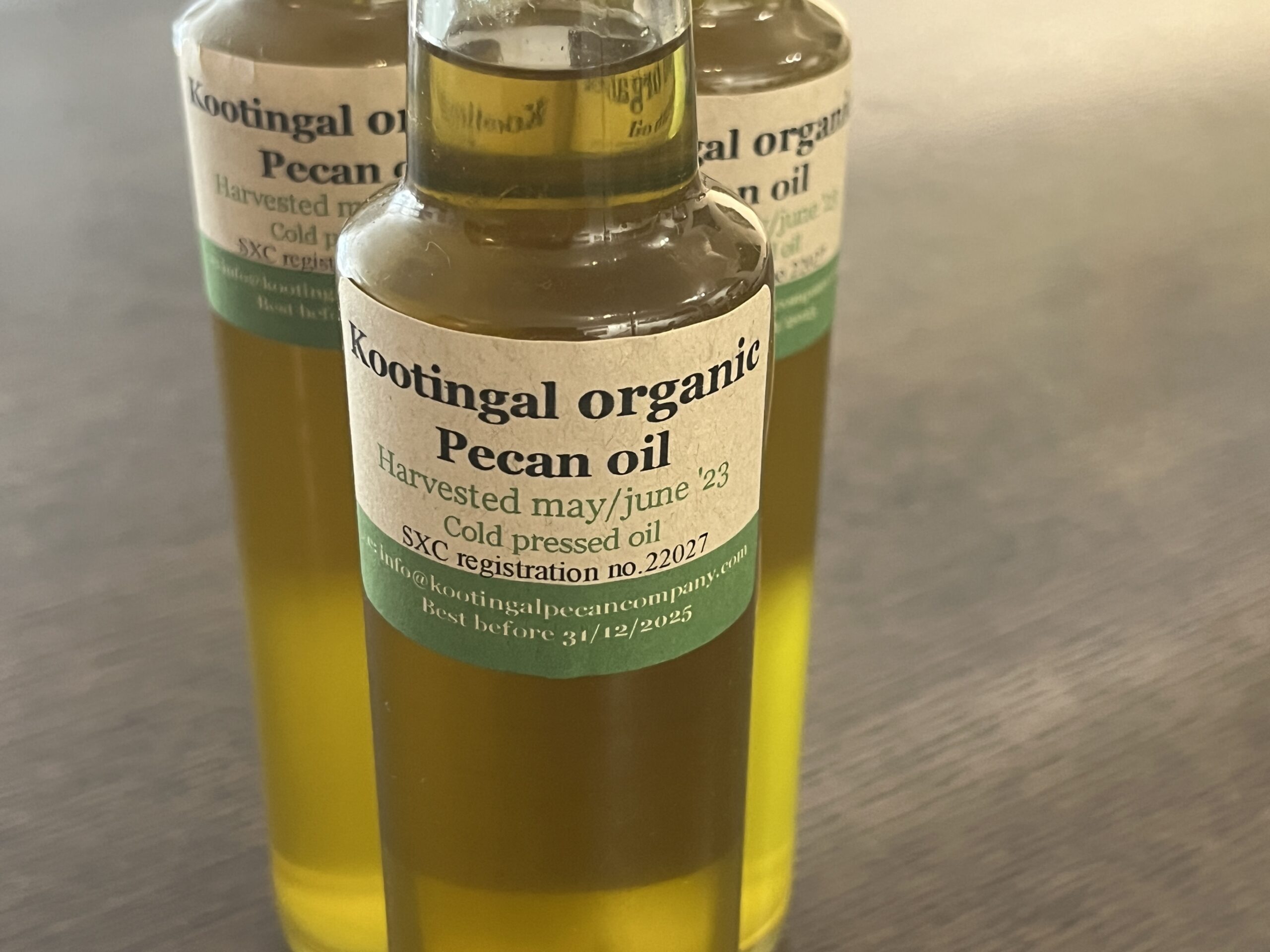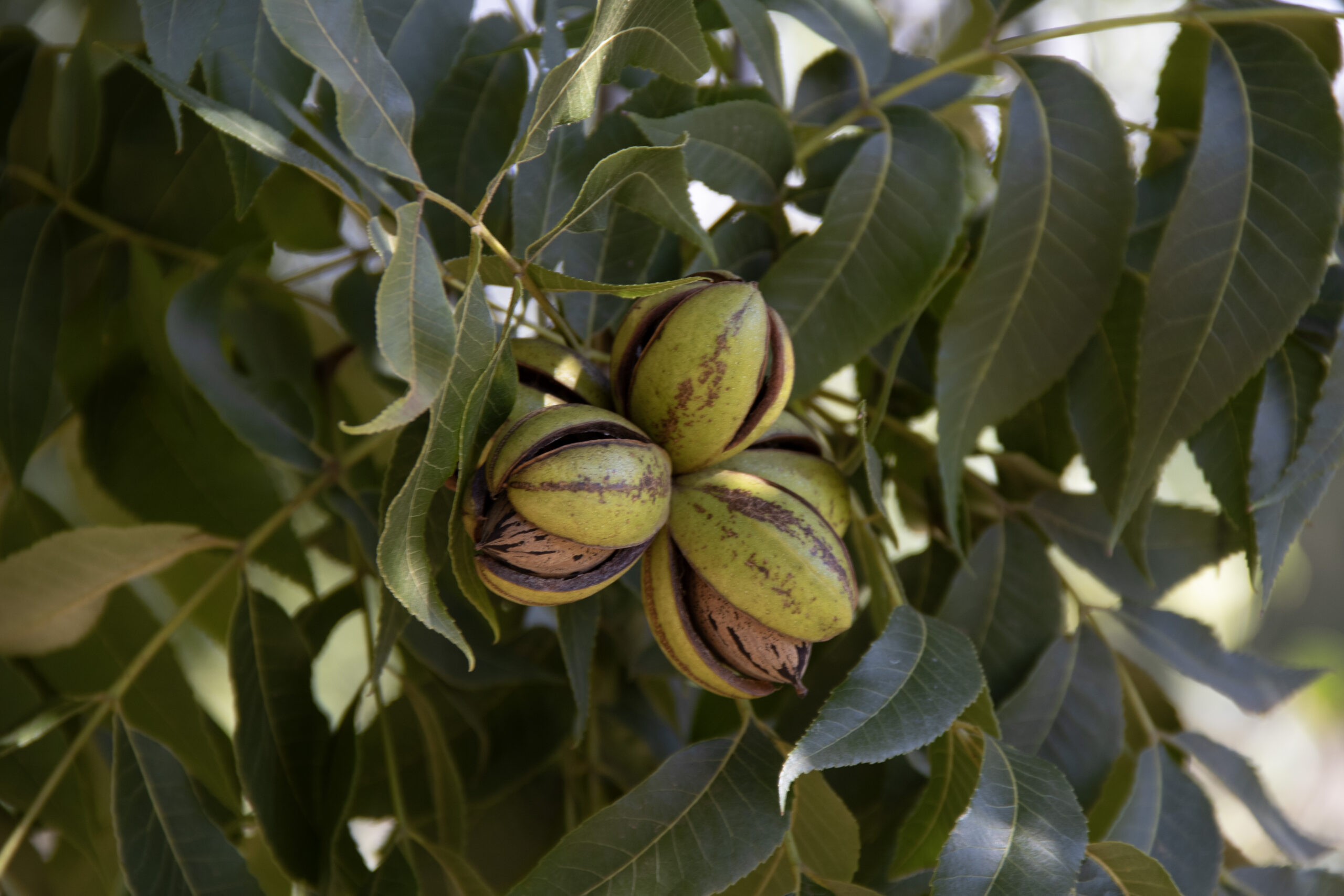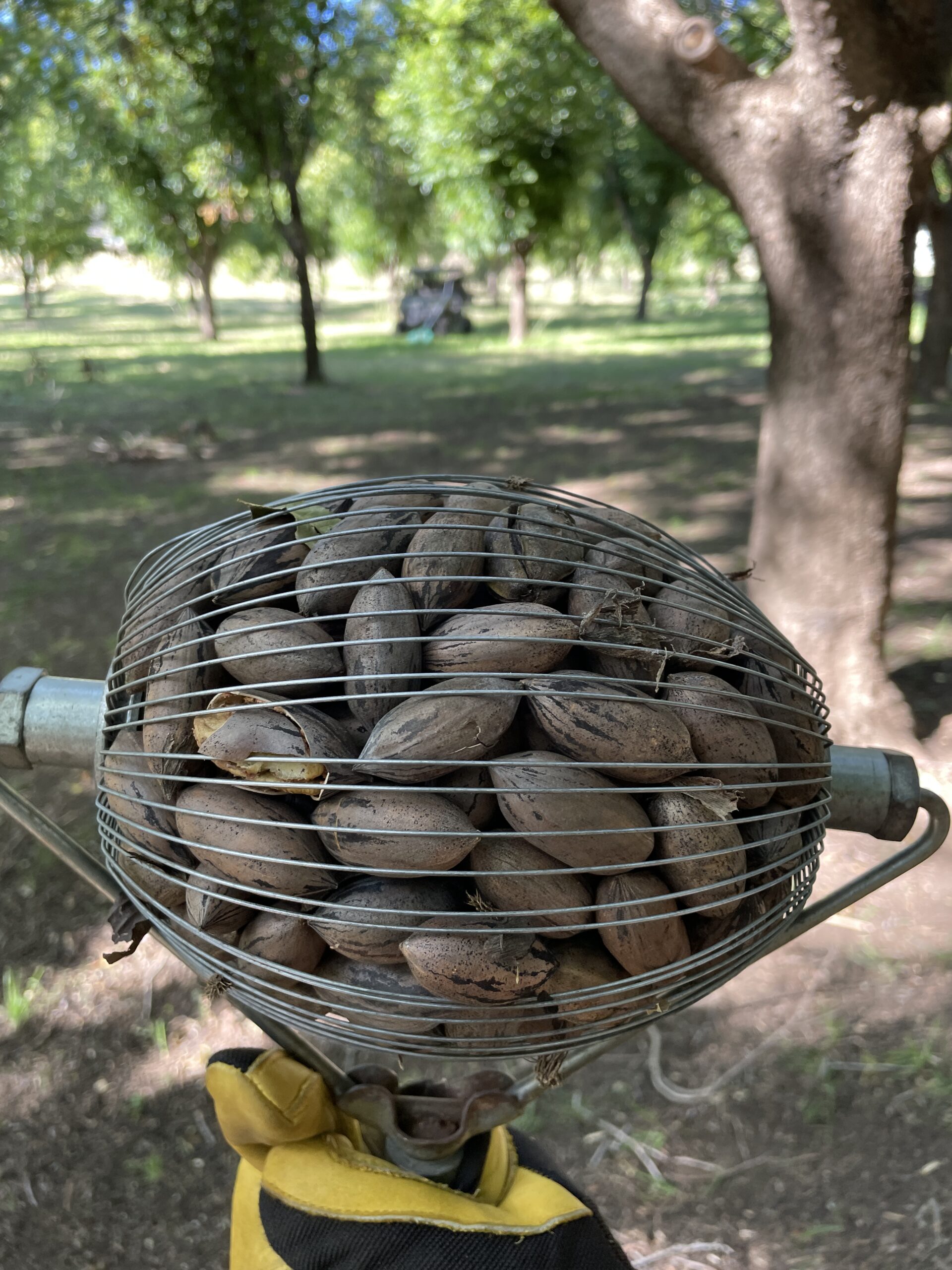Pecans – Full of Healthy Fat & Life
In this article, we explore why fat is not your enemy on your journey to health. We get into why eating a good amount of healthy fat each day, such as a serving of certified organic pecans, will make you lose weight, burst with energy, and significantly lower your risk of dying earlier than necessary. Sounds too good to be true? Well, let us explain.
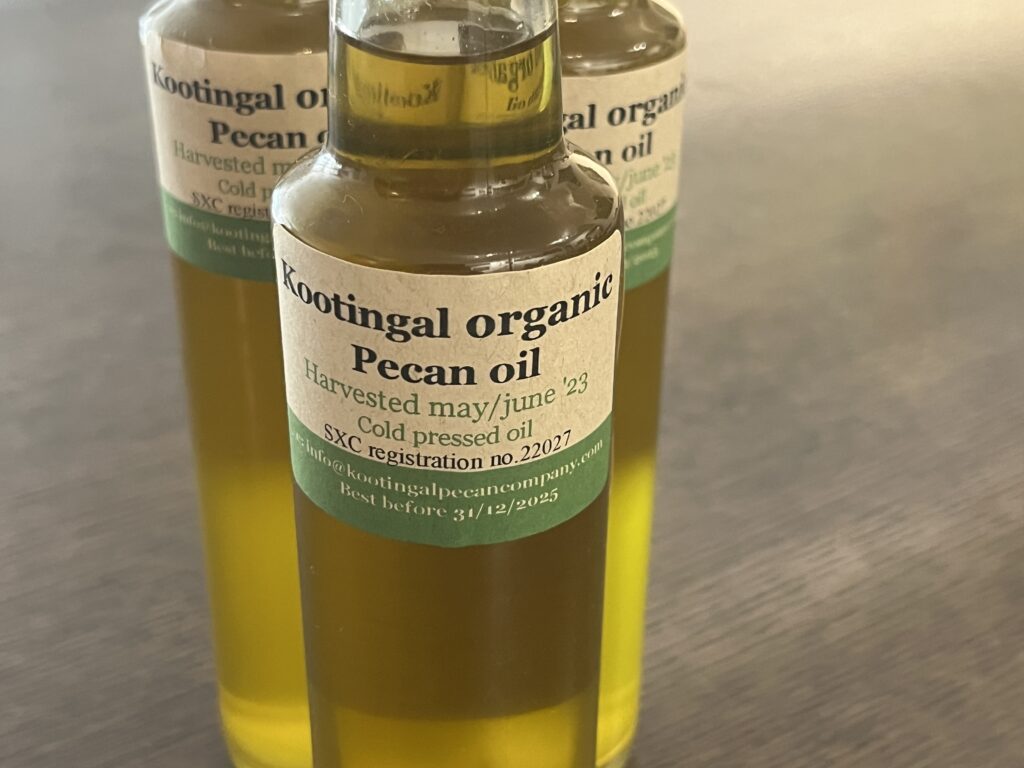
The idea that fat (lipids in nutrition terms) makes us fat comes from a study that was conducted in the 1960s. The sugar industry funded this research, and it is widely known today that this shift in mindset within the science community and, ultimately, the general public created a whole new way of eating. The low-fat and no-fat movements came to life!
Unfortunately, looking at today’s statistics and facts, reducing fat by any means wasn’t the solution. For decades, fat has been the most vilified nutrient in Western diets.
But is fat really hurting our health?
Certainly not.
Lipids (fats) are an essential part of our diet, and as with any other macronutrient (e.g. carbohydrates or proteins), we need to consume a certain amount every day to stay fit, healthy and well. Dietary guidelines of many countries stated from the 1980s that all fat should be avoided, and dietary cholesterol was directly related to blood cholesterol. These theories and policies have been majorly adjusted since, and as science progresses, our understanding of nutrition progresses too. It is now understood that the type of fat we consume matters more than labelling all fat in the same way. The same applies to carbohydrates and protein to a certain extent. The “calories in, calories out” story is one that needs a new narrative and eating whole foods such as pecans is a good start!
Good food v bad food
The “nutritional experiment” of changing our diets from one extreme to the other we all participated in – mostly involuntarily – changed the way we view food and talk about it. Until today and maybe more often, we attach labels and emotions to certain foods deemed good or bad. And we see food more as disconnected components such as good carb vs. bad carb instead of the actual nutritional value that a particular food could provide us with. It seems it is time to end the war on fat, or any other nutrient for that matter and concentrate on different facts. For example, how bio-individuality drives one’s health and how we can help our bodies restore a state of overall wellbeing. Understanding the importance of heart health beyond cholesterol and its impact on cardiovascular disease and stabilising blood sugar levels as a catalyst for weight loss can be life-changing, and we are here for it!
Identifying healthy fats
Which fats are classified as healthy fats, and how much should we eat? If you have ever wondered which fats or oils are the best ones to use for various cooking methods or consumption, then understanding more about the basic chemistry of lipids will help you decide.
Lipids that are liquid at room temperature, such as olive oil, are generally called oils, and those that are solid at room temperature, such as lard, are called fats. The chemical properties of a lipid can influence its physiological functions in our bodies, and therefore we use different names for each one. From saturated fat to the unsaturated fats called mono and polyunsaturated fatty acids over to trans fats which are the true bad boys these days – we have heard them all.
Then we have the highly praised omega 3 fatty acids and the less magnified omega 6 fatty acid(s) that are equally important but often overconsumed in a standard Western diet. Unhealthy saturated and trans fats can heighten your risk of heart disease by increasing the bad (LDL) cholesterol and lowering the good (HDL) cholesterol. Replacing energy intake from saturated fat with energy from polyunsaturated fat, monounsaturated fat and whole foods is associated with a lower risk of heart disease and other lifestyle-driven illnesses.
The NHMRC (National Health and Medical Research Council) recommends that to reduce the risk of chronic diseases, such as coronary heart disease, we should aim to get 20-35% of our total energy intake from lipids (fats). This recommendation is for healthy people, and those with specific illnesses or conditions should get specific advice from a qualified health professional. Limits are put on saturated fat, and trans fat and their intake should be no more than 10% of total energy intake.
The Australian Heart Association takes an even more conservative view and recommends that dietary saturated fat should be less than 10% of total energy intake, and dietary trans fat should be less than 1%. The American Heart Association says that reducing intake of trans fat and limiting consumption of saturated fat to 5 to 6% of total calories would be best, but it also recommends reading nutritional information labels and aiming for 0% trans fat were possible.
On the other hand, Australian Nutrient Reference Values recommend adequate amounts of omega 6 and omega 3 fatty acids for overall health and lowering the risk of many diseases. Omega-3 fatty acids are essential fats that have numerous health benefits. However, not all omega-3s are created equal. Among 11 types, the 3 most important are ALA, EPA, and DHA. ALA is primarily found in plants, while EPA and DHA are mostly found in animal foods like oily fish such as salmon. The adequate daily intake for ALA is 1.3 g for men and 0.8 for women, whereas EPA and DHA sit at 160 mg for men and 90 mg for women.
Pecans are rich in Omega-3
Omega-3 fatty acids are a type of polyunsaturated fat, and the benefits of omega 3 from pecans are:
- Lower heart rate and improve heart rhythm
- Decrease the risk of clotting
- Lower triglycerides
- Reduce blood pressure
- Improve blood vessel function
- Delay the build-up of plaque (a fatty substance) in your arteries
A 30 g serving of pecan nut(s) contains 186 mg of omega-3 fatty acids, which exceeds the adequate daily intake – good news! Fats in organic pecans are mono and polyunsaturated fats, with a slightly higher proportion of monounsaturated fat – significant for a healthy heart.
Activated organic pecans are one of the few plant sources of omega-3 fats, making them even tastier!
When it comes to cooking, roasting or baking, the odds are not in our favour: Many fats and oils become rancid and should not be consumed heated due to their high levels of carcinogenic components.
So what about the stir-fry topped with roasted nuts, the baked goods such as the pecan pie and cookies, the creamy desserts or the roasted vegetables marinated with pecan oil? Are raw nuts better than roasted nuts? Should any vegetable or nut oil be only consumed cold? The answers lie in between and further apart, depending on who you ask.
Cooking oils- introducing pecan oil
With regards to cooking, not all oils are created equal. Oils can withstand varying heat levels depending on their smoke point. But overheating can cause cooking oil hazards that are not so easy to determine. If the heat level is exceeded, the oil not only begins to lose its nutritional value and flavour, it produces toxic fumes and hazardous substances called free radicals. The antioxidants we consume every day won’t be able to handle that many free radicals, especially if we are exposed to them at every meal. Many oils are suitable for dressings or garnishes, such as nut oils or Extra Virgin olive oil. In contrast, others are preferable for grilling or stir-frying with higher heat, for example, coconut oil or ghee.
A rule of thumb can be that saturated fat has a higher smoke point and mono or polyunsaturated fats often have a lower smoke point. That makes pecan oil great for salad dressings and cooking with because of such a high smoke point, ground pecans or pecan halves fantastic for baking, and raw pecans are yummy anyway.
